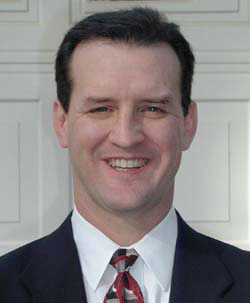Mohamed A. Hamid, MD, PhD, believes, as a matter of principle, that an office vestibular examination is necessary before ordering electronystagmography (ENG)-or any other vestibular diagnostic tests, for that matter.
Explore This Issue
March 2007Considered one of the foremost experts on treating balance and dizziness, Dr. Hamid, along wtih his team at the Cleveland Hearing & Balance Center, spent more than a year studying the predictive value of office vestibular examination in forecasting ENG test results. At the recent American Academy of Otolaryngology-Head and Neck Surgery Annual Meeting in Toronto, he reported that the findings are encouraging.
The study, Prediction of ENG Results from Office Vestibular Examination, concluded that vestibular exams are highly sensitive in predicting ENG test results in 95% of vestibular patients, and went on to state that physicians can rely with confidence on office vestibular examination when ENG is not available.
This presentation created either very positive or very negative feelings in the audience at the Toronto meeting, Dr. Hamid said. Some felt very negative perhaps because of lack of ability to do office vestibular exams, lack of time, or because of financial implications.
Dr. Hamid said other physicians thought it was promising because many otolaryngologists, especially those in remote areas, do not have ready access to tools such as ENG.
But I also believe the message was misconstrued quite a bit, he said. The vestibular industry was not happy about the presentation either.
At this juncture of my career, my responsibility is primarily to my patients, expanding the knowledge of auditory and vestibular medicine, and providing cost-effective management of hearing and vestibular disorders. We are currently studying the same concept for other expensive diagnostic tests such as MRIs.
Gerard J. Gianoli, MD, of Baton Rouge, La., said he had several questions regarding the study’s conclusions, but pointed out that Dr. Hamid’s full study has not yet been published, so it is too early to accept or dismiss the findings from an abbreviated abstract presentation.
I cannot say, based on the results we have been provided, that the conclusions here can be supported, Dr. Gianoli said. But I’d like to see the full study before making any concrete determinations.
The Study
The prospective study was completed over the course of one year in a tertiary-care hearing and balance center. The sample population was made up of 100 patients, each presenting with dizziness or vertigo, who underwent an office vestibular examination using Frenzel’s glasses or video monitoring and ENG tests.

Leave a Reply